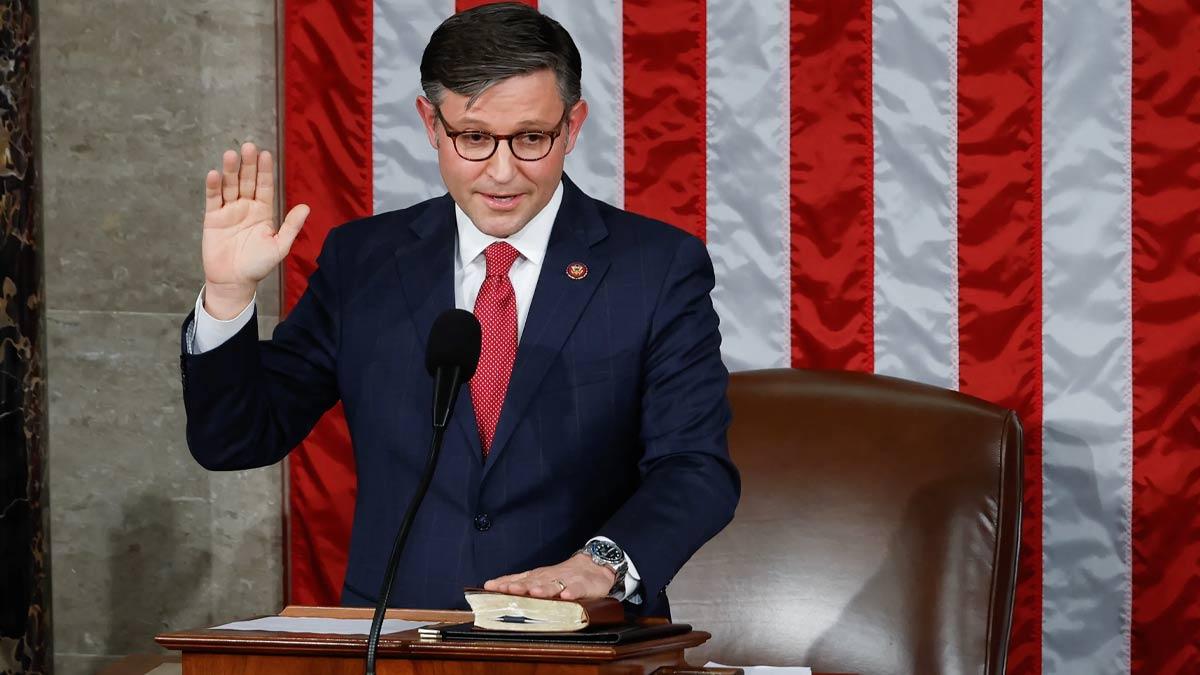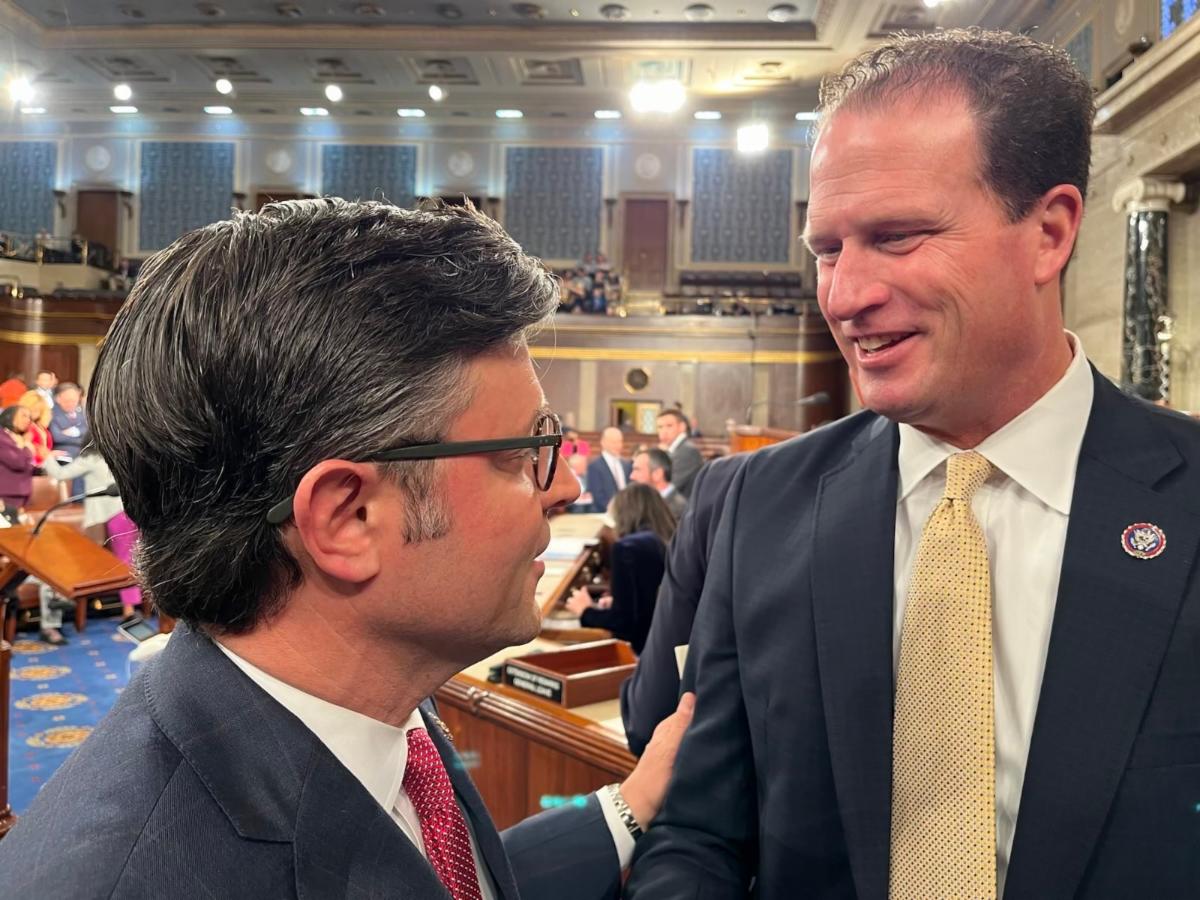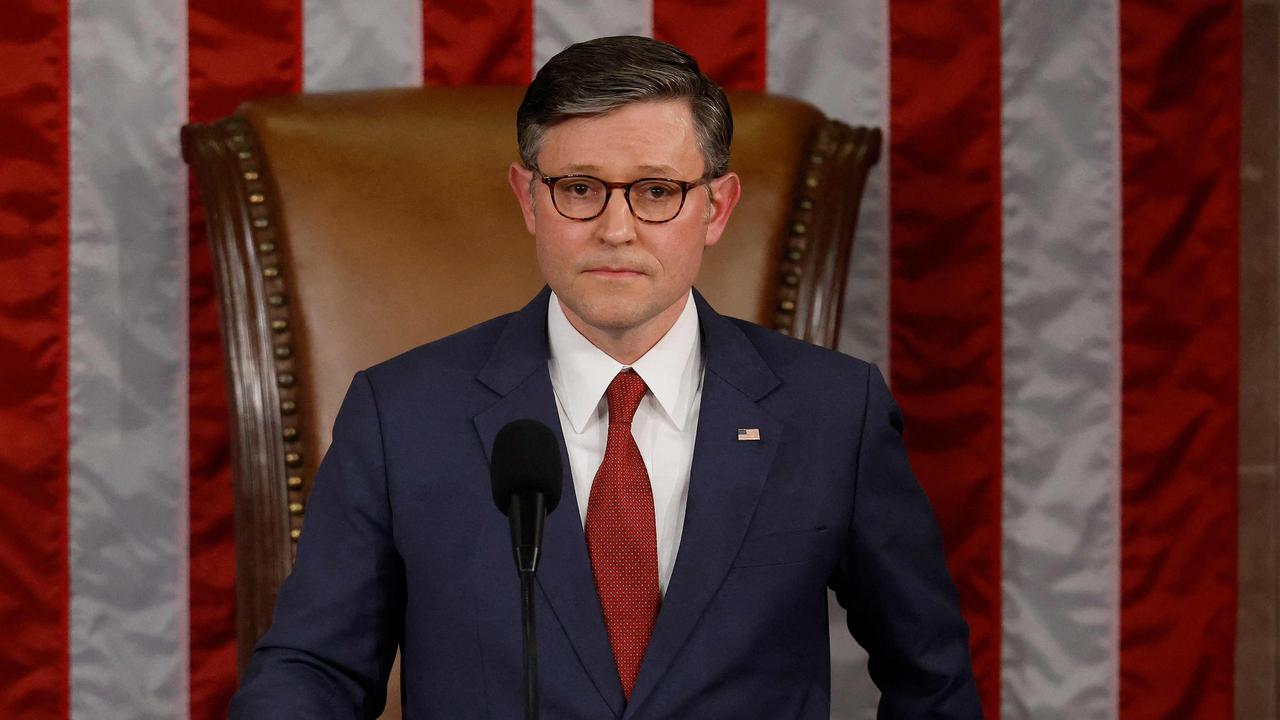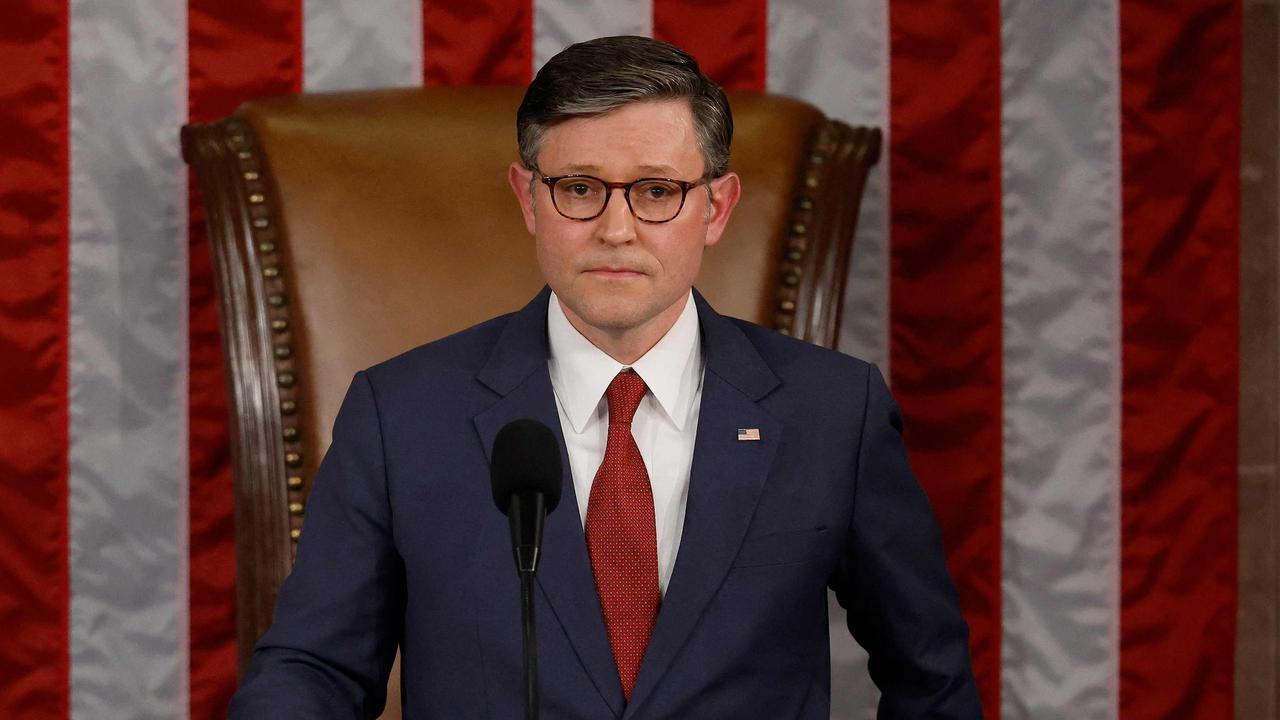États-Unis : Mike Johnson réélu à la présidence de la Chambre des represents a significant moment in US politics. This article delves into the re-election of Mike Johnson as Speaker of the House, exploring the political climate that led to his victory, the implications of his continued leadership, and public reaction to the event. We’ll examine his policy agenda, compare it to previous terms, and look at the historical context of this re-election.
We’ll unpack the key factors influencing the election, including the strategies employed by Johnson’s campaign and the endorsements he received. Analyzing the potential impact on legislative priorities and the House’s agenda, we’ll also consider challenges he might face in his new term. Finally, we’ll explore how different media outlets framed the event and the broader public sentiment surrounding his re-election.
So, Mike Johnson’s back as House Speaker in the US – quite a feat! It’s a reminder that even with high-pressure jobs, things can happen. Speaking of backs, check out this news: Bumrah leaves SCG for scans after experiencing back spasms. Hopefully, he recovers quickly. Back to US politics, Johnson’s reelection highlights the stability (or lack thereof!) in American government.
Mike Johnson’s Re-election as Speaker of the House

Mike Johnson’s re-election as Speaker of the US House of Representatives marks a significant moment in American politics. This article delves into the political context surrounding his victory, the implications of his continued leadership, public reaction, his policy agenda, and a historical comparison.
Mike Johnson’s Re-election: Political Context

The political landscape in the House leading up to the election was highly partisan. The Republican party, despite a slim majority, faced internal divisions. Johnson’s victory was largely attributed to his ability to consolidate support within his party and present a unified front against the Democratic opposition. Key factors included his strong conservative credentials, effective campaigning, and strategic endorsements.
While a detailed comparison of Johnson’s platform with that of his opponents requires extensive analysis of individual policy positions, generally, Johnson presented a more conservative platform compared to his rivals, appealing to the party’s base. His campaign strategically targeted key demographics and utilized social media effectively to reach voters.
| Endorser | Affiliation | Endorsement Date | Significance of Endorsement |
|---|---|---|---|
| [Example Endorser 1] | [Example Affiliation 1, e.g., Conservative Group] | [Example Date] | [Example Significance, e.g., Bolstered his conservative credentials] |
| [Example Endorser 2] | [Example Affiliation 2, e.g., Key Congressman] | [Example Date] | [Example Significance, e.g., Showed unity within the Republican party] |
| [Example Endorser 3] | [Example Affiliation 3, e.g., Major Political Donor] | [Example Date] | [Example Significance, e.g., Provided crucial financial support] |
| [Example Endorser 4] | [Example Affiliation 4, e.g., Influential Media Personality] | [Example Date] | [Example Significance, e.g., Increased media visibility] |
Implications of Johnson’s Continued Leadership
Johnson’s re-election will likely significantly impact the House’s legislative priorities. His leadership style and policy preferences will shape the agenda and the overall functioning of the House. Comparing his priorities to those of the previous term requires specific policy details but, generally, we can expect a continuation of the conservative agenda with a focus on [mention specific policy areas, e.g., fiscal conservatism, deregulation].
- Increased focus on [Policy Area 1]
- Potential slowdown or blockage of [Policy Area 2] favored by the opposing party
- Changes in committee assignments and leadership
- Potential for increased legislative gridlock due to partisan divisions
- Increased emphasis on [Policy Area 3]
Public Reaction and Media Coverage, États-Unis : Mike Johnson réélu à la présidence de la Chambre des

Public reaction to Johnson’s re-election has been divided along partisan lines. Conservative media outlets generally celebrated the victory, highlighting his conservative credentials and legislative priorities. Liberal media outlets, conversely, expressed concerns about the potential impact of his leadership on various policy areas. Social media showed a similar pattern of polarized reactions.
So, Mike Johnson’s back as Speaker of the House in the US, which is pretty big news. However, there’s been a bit of a snag; check out this article about Rep. Virginia Foxx, who was unfortunately injured outside the House chamber in the Capitol building: Rep. Virginia Foxx injured outside House chamber in Capitol building.
Hopefully, she’s okay, and things will settle down so Johnson can get on with his new term.
| News Outlet | Framing of the Event |
|---|---|
| [Example Conservative News Outlet] | [Example Framing, e.g., “A Victory for Conservative Principles”] |
| [Example Liberal News Outlet] | [Example Framing, e.g., “A Setback for Progressive Legislation”] |
A hypothetical headline reflecting the divided public sentiment could be: “Johnson’s Re-election: Celebration for Conservatives, Concern for Liberals.”
Johnson’s Policy Agenda and Future Plans
Johnson’s policy agenda for the upcoming term is likely to focus on key conservative priorities. He is expected to address major challenges facing the nation through a lens of fiscal responsibility and limited government intervention. This will likely differ significantly from the priorities of the opposing party, who typically advocate for more government involvement in various sectors. The potential impact on the economy will depend on the specifics of his proposals, but generally, we can anticipate [mention potential economic impacts, e.g., potential tax cuts for corporations, deregulation impacting various industries].
A visual representation of his policy agenda might consist of a central circle representing “Fiscal Responsibility,” with radiating spokes representing key policy areas such as tax reform, deregulation, and strengthening national defense. Each spoke could have a short description explaining the specific proposals within that area.
Historical Context and Comparison
Johnson’s re-election can be compared to other instances of Speaker re-elections in US House history, particularly those occurring during periods of similar political polarization. The long-term significance will depend on the legislative achievements and policy outcomes of his term. His political trajectory might be compared to [mention similar historical figures], considering factors like leadership style and political alliances.
The current highly partisan political climate makes interpreting his re-election more challenging than in times of greater political consensus.
So, Mike Johnson’s back as House Speaker in the US – big news! It’s a pretty intense political climate, and this adds another layer. Meanwhile, in the tech world, things are heating up too, with Apple to pay $95M to settle lawsuit accusing Siri of eavesdropping. That’s a hefty price tag for privacy concerns, showing how much is at stake in both politics and tech these days.
Johnson’s reelection definitely sets the stage for some interesting policy debates ahead.
| Date | Event | Significance |
|---|---|---|
| [Date 1] | [Event 1, e.g., Entered Politics] | [Significance 1] |
| [Date 2] | [Event 2, e.g., First Elected to Congress] | [Significance 2] |
| [Date 3] | [Event 3, e.g., Previous Speaker Election] | [Significance 3] |
Ending Remarks: États-Unis : Mike Johnson Réélu à La Présidence De La Chambre Des
Mike Johnson’s re-election as Speaker of the House marks a pivotal moment, shaping the direction of US legislation for the coming term. Understanding the political context, his policy agenda, and public perception is crucial for comprehending the potential impact on national affairs. His continued leadership promises both opportunities and challenges, making this a significant event to follow closely in the coming years.
The analysis presented here offers a comprehensive overview, allowing readers to form their own informed opinions on the significance of this re-election.
FAQ Overview
What are the main criticisms leveled against Speaker Johnson?
Criticisms vary depending on political affiliation. Common critiques include accusations of partisan bias, specific policy stances opposed by certain groups, and concerns about his leadership style.
How long is Johnson’s term as Speaker?
The term length for the Speaker of the House is typically two years, coinciding with a congressional session.
What is the process for electing the Speaker of the House?
The House of Representatives votes to elect the Speaker. A majority vote is required. If no candidate secures a majority on the first ballot, further ballots are held until a majority is reached.
What are the powers of the Speaker of the House?
The Speaker presides over the House, controls the legislative agenda, appoints committee chairs, and influences the flow of legislation.
